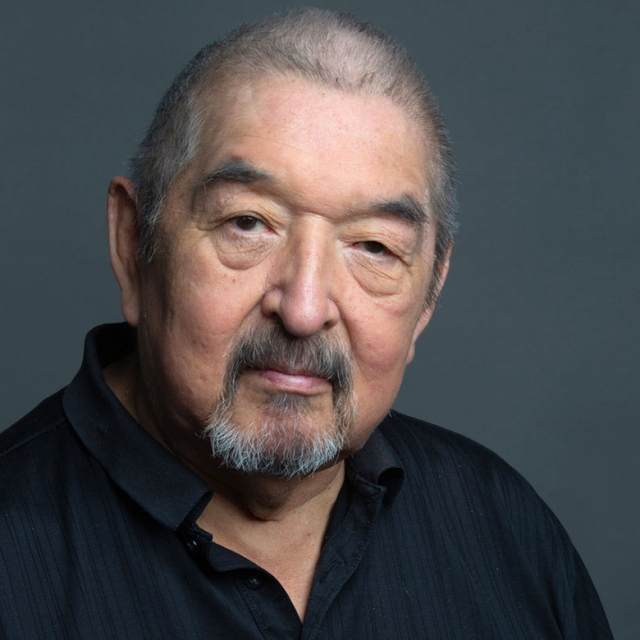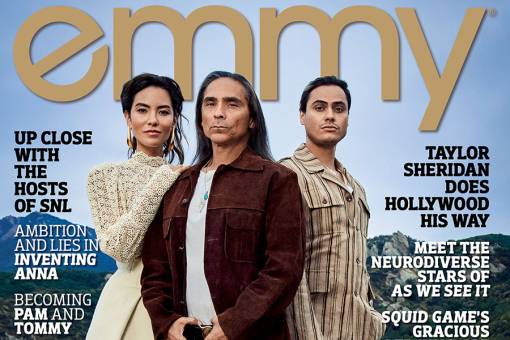Graham Greene stands out as a trailblazer for his longevity in a fickle profession — he has been a working actor for more than 40 years — and for his numerous achievements. Perhaps most notably, he is one of only five Native or Indigenous actors to receive an Oscar nomination.
The milestone came in 1990, when he scored a best supporting actor nom for his performance as Kicking Bird in that year's best picture winner Dances with Wolves.
But in a phone conversation from his home near Toronto, the native Canadian preferred to speak about the great experiences he's had recently working in television on shows including Goliath, American Gods, Longmire and Defiance.
Greene's modesty about his film resume, which includes roles in The Green Mile, The Twilight Saga, Thunderheart, Maverick, Transamerica, Winter's Tale, Wind River and Die Hard with a Vengeance, is inversely proportional to the respect he has earned for his work.
He is the recipient of three Gemini Awards, Canada's top television honor, including its 2004 Earle Grey Award, a lifetime achievement prize. In addition, Greene won a Grammy Award for best children's spoken word album, 2000's Listen to the Storyteller.
Reflecting on his career, Greene, who is a member of the Oneida Nation, has many stories to tell, like standing up to a clueless director who wanted him to "speak Indian."
"I responded that I don't speak Punjab or Hindu. He said that people wouldn't know the difference, and I said that they would," Greene recalls. "It's been happening for 40 years. It's like some people are living back in the '30s and '40s, not realizing we have color film now, not to mention digital. We get the same thing every time."
He prides himself on standing up for authenticity. To speak Lakota for one film, he worked for four months to learn his part phonetically.
Looking back, Greene admits things have improved for Indigenous representation — although it has been an uphill battle.
"The landscape back then," he says, "was, 'Here, put this on.' I would ask who I was supposed to be representing. 'Well, it's this nation.' 'But they wouldn't wear that.' 'That's all we got.'
"It's just been tough getting heads turned around. But there are a lot of people out there plowing roads for their own production companies, and a lot of directors and writers.
I always tell kids: 'If you lean on the fence hard enough, eventually it will fall over.'"
Greene looks at much of the representation of Native peoples on television and in films of the past as a morass of cliches.
"My people just disappear," he says. "They hear a whistle and whoosh, we vanish into thin air. I've tried to change that through my career in acting. We're a family group — not just a bunch of people on the Plains. Everyone has their family foibles. I always try to put some humor into every project. If I can't have any fun, I don't go to work."
Greene says he prefers modern-day roles, like the judge he played in the 2017 film Molly's Game, over historic pieces. "It's more fun and diverse to do contemporary. If it's a period piece and they tell me I have to wear a wig, I say I'd rather shave my head because at this point, I'm the boss."
Next up is a documentary about his life called No Reservation Required. The Life and Times of Graham Greene. It's being written and directed by Carl Goldstein, who first worked with Greene as first assistant director on 1995's Die Hard with a Vengeance.
"It started off as a joke by Carl, who said he wanted to do a documentary," Greene says. "He came up to where I live, and we sat around and talked about my life. He got clips and interviewed other people I worked with."
Greene's first foray into the entertainment industry was in the music business as an audio tech for rock bands based in Newfoundland and Labrador.
"While I was working in the music business, I was asked to do a theater workshop and decided I liked doing it," he says. "It beat carrying amplifiers around for loud bands and having to drive halfway across the country. So, I came into acting accidentally."
After graduating from Toronto's Centre for Indigenous Theatre's Native Theatre School in 1974, he began performing on stage. Soon, he received a Dora Mavor Moore Award for best actor from the Toronto Alliance for the Performing Arts — similar, he says, to an Obie or a Tony. After that, television and film offers started coming in.
They haven't stopped since, nor have the accolades.
In December, Greene will receive a star on the Walk of Fame in Toronto — and you can bet he'll be wearing a very authentic smile.
For more on Native American contributions to television, click HERE











